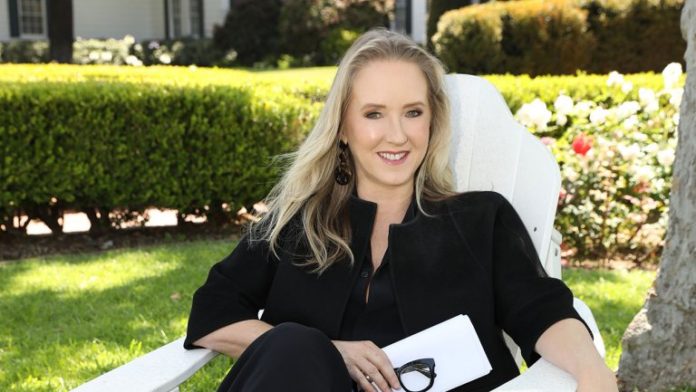
Jennifer Salke’s plans to spend Amazon Studios’ $4.5 billion war chest are coming into focus.
Four months after replacing embattled exec Roy Price, the former NBC Entertainment president turned head of the retailer/streamer has firmed up her executive ranks, started making overall deals and is working to change the culture of the studio that David E. Kelley famously called “a bit of a gong show.”
Charged with delivering Amazon CEO Jeff Bezos a Game of Thrones-style mega-hit, Salke started the job in February with three main goals. The first was to improve the corporate culture at Amazon after Price and his top two lieutenants were pushed out amid allegations of sexual harassment and conflict of interest. The second is to make Amazon Studios a destination for top filmmakers and showrunners amid a war for talent, as they look to compete with Netflix’s nine-figure overall deals. And the third goal? To deliver hit shows — and fast.
To do so, Salke turned to longtime collaborator and former NBC head of current Vernon Sanders to lead creative as co-head of television, working alongside Albert Cheng (who oversees the business side). That followed Salke’s decision to restructure her TV department, with Sharon Tal Yguado — who oversaw scripted during the search for Price’s replacement — focused on genre. Marc Resteghini heads drama while Nick Hall moved to oversee alternative, YA (now among Salke’s top priorities) and specialty series. With her executive ranks now in order, Salke plans to assess the skills of her team before making any additional staffing changes, as her film and TV teams get to work on delivering those broad hits.
On the deal side, Salke recently ordered dramas from Oscar winner Jordan Peele (The Hunt) and Gone Girl author Gillian Flynn (Utopia) — and inked first-look TV pacts with both as she signaled Amazon’s aggressive push for a curated roster of top writer-producers. Still to come is more female-driven fare, starting with the newly ordered half-hour romantic anthology Modern Love (based on the New York Times column of the same name). Those join an inherited slate that features awards darling The Marvelous Mrs. Maisel and Carlton Cuse’s upcoming Jack Ryan series, both of which scored early renewals under Salke.
On the development front, Amazon’s so-called “democratic pilot process” is a thing of the past, replaced with a more traditional pipeline that will also see larger commitments when the deals call for it as Salke also looks to build a global presence.
As for film, a space where Salke admittedly had little experience coming in, the exec has a similar strategy in mind as she hopes to partner with traditional studios for a slate of “wide audience” draws and arthouse fare a la Oscar winner Manchester by the Sea for a slate that includes originals, co-productions, acquisitions, direct-to-platform and theatrical releases.
The Hollywood Reporter sat down with Salke last week on Amazon’s burgeoning Culver City campus to discuss her efforts to transform Amazon Studios and overhaul a corporate culture that was marred by allegations of sexual harassment.

What conversations did you have with Jeff Bezos before you took the job?
I spent about an hour and a half with Jeff Bezos in Seattle. He talked about wanting to take a long view of what this service could provide to our customers. He wants what everyone wants: great, addictive television that people love and can’t stop talking about that breaks through culturally and gets people addicted and enhances their prime membership.
Roy Price and two of his top lieutenants Joe Lewis and Conrad Riggs were pushed out last year. What kind of cultural changes are you implementing at Amazon to ensure a safer environment?
Having somebody like me, who celebrates women and diversity, come in is a huge first step. The fact that I’m also an accessible and transparent leader spoke volumes in the first days of being here. I had two or three weeks of executives and people across the company on my sofa, many of them women, talking about their experiences and how they were feeling and wanting to be someone who could listen and be an advocate for them. At the same time, I walked into this company at a time where they were already fully embracing change. Sometimes it takes negative things to get to those places and for Amazon, this was a real moment months ago to step up and make a big change. It has been a welcome change here and it does take intentional outreach, which we’re doing a lot of.
In terms of staffing, you’ve brought in Vernon Sanders to co-run TV with Albert Cheng and have Jason Ropell and Ted Hope overseeing the film. How many big positions are you looking to fill?
I came in with no intention to replace everybody or make any big changes. My goal over the coming year is to spend as much time as possible with everyone, see what everyone’s skill sets are and go from there. Jason is doing a great job in a challenged business that’s evolving every day that we sit here. And the team in television, I de-structured them to spend more time with all of them — to be in rooms and have projects together where I’m seeing how they work and what their strengths are. I’ve been encouraged by what I’ve seen in everyone. I don’t have any plans to make any big changes. I want Vernon and Albert to own some of that space and start spending time with those teams. Time will tell where we end up, but I feel optimistic that we have great people here.
With two heads of television in Sanders and Cheng, what is your day-to-day on the TV side now that you’re seemingly out of the development trenches?
I am really involved in the development trenches. I have pitches all day long. I am in constant contact. I sent two articles to our drama team to go option, which they are already into. I can’t get away from the creative thing. I love it.
There have been a lot of showrunner changes on Amazon programming. David E. Kelley famously called the team “a bit of a gong show.” What is your message to the creative community about the culture at Amazon now?
With myself at the helm, there is a team in place now who will be able to have the relationships with talent that will be much more productive and, no disrespect for any one person or group of people on our team, but when you have a lot of people who don’t have these deep relationships and experience with that level of talent, you’re going to run into problems like that. You need to have the experience, maturity and confidence to be able to have hard conversations with people. It’s a perfect storm when you have a frustrated, strong producer who isn’t being communicated with clearly — and I’m not talking about David E. Kelley because I haven’t analyzed all these situations.

What is your larger mandate?
My drive coming in was three main goals: One was, how do we become the most collaborative culture as a company? How do we become the very…










